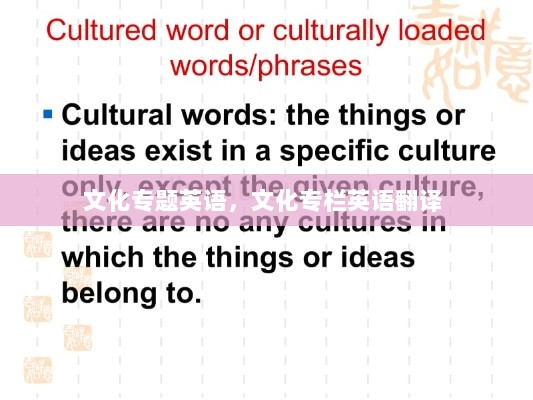Introduction to Cultural Studies in English
Cultural studies in English is a multidisciplinary field that explores the ways in which culture shapes our understanding of the world. It encompasses a wide range of topics, including literature, film, media, and social practices. By studying culture through the lens of English, students gain a deeper insight into the cultural contexts that influence language, literature, and society. This article aims to provide an overview of cultural studies in English, highlighting its key concepts, methodologies, and contributions to the academic world.
Key Concepts in Cultural Studies
At the heart of cultural studies is the examination of power dynamics and social relations. Key concepts such as "ideology," "hegemony," and "discourse" are central to understanding how culture operates. Ideology refers to the set of beliefs, values, and assumptions that shape social behavior and thought. Hegemony, on the other hand, describes the dominance of one group or idea over others. Discourse, in cultural studies, refers to the ways in which language is used to construct and maintain social realities.
Another important concept is "intertextuality," which suggests that texts are not isolated entities but are interconnected with other texts and cultural contexts. This concept emphasizes the importance of understanding the historical and cultural background of a text to fully appreciate its meaning. Additionally, "cultural identity" and "hybridity" are crucial in cultural studies, as they explore how individuals and groups navigate multiple cultural influences and construct their own identities.
Methodologies in Cultural Studies
Cultural studies employs a variety of methodologies to analyze culture. One of the most prominent approaches is "critical theory," which emerged from the Frankfurt School of critical theory in the 20th century. Critical theory aims to uncover the underlying assumptions and power structures that shape cultural phenomena. This approach often involves a close reading of texts, media, and other cultural products to reveal their ideological underpinnings.
Another methodology is "ethnography," which involves the systematic study of a particular culture or community. Ethnographers collect data through participant observation, interviews, and other qualitative research methods. This approach allows for an in-depth understanding of the cultural practices, beliefs, and social structures of a group.
Postcolonial theory is also a significant methodology in cultural studies, particularly in the context of English literature and media. It examines the legacies of colonialism and the ways in which colonial powers have influenced the cultural production of postcolonial nations. Postcolonial theory challenges Eurocentric perspectives and seeks to highlight the voices and experiences of marginalized groups.
Contributions of Cultural Studies
Cultural studies has made significant contributions to various academic disciplines. In the field of English literature, cultural studies has enriched our understanding of texts by examining their cultural contexts and the social dynamics that shape their production and reception. It has also led to the recognition of diverse voices and perspectives, challenging the traditional canon of English literature.
In media studies, cultural studies has provided valuable insights into the ways in which media constructs and shapes our understanding of the world. It has highlighted the role of media in reinforcing or challenging social norms, ideologies, and power structures. Furthermore, cultural studies has contributed to the field of communication studies by exploring the relationship between language, power, and identity.
Additionally, cultural studies has had a profound impact on social sciences and humanities. It has encouraged scholars to adopt a more holistic approach to understanding society, recognizing the interconnectedness of culture, politics, and economics. This interdisciplinary approach has led to innovative research and has broadened the scope of academic inquiry.
Conclusion
Cultural studies in English is a dynamic and ever-evolving field that offers a rich tapestry of insights into the complexities of culture. By examining the ways in which culture shapes our understanding of the world, cultural studies provides a framework for critically analyzing and interpreting the cultural products and practices that surround us. As our world becomes increasingly interconnected, the importance of cultural studies in English cannot be overstated. It continues to contribute to the academic discourse and offers valuable perspectives on the human condition.










 京ICP备11000001号
京ICP备11000001号
还没有评论,来说两句吧...